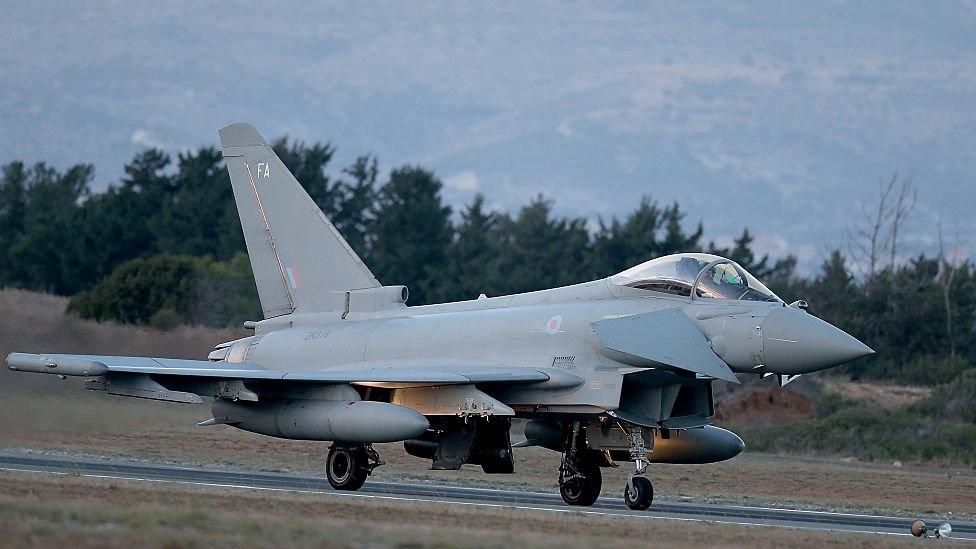Islamic State remains 'most significant' threat to UK
- Published

The RAF has continued to target IS fighters in 2020, the defence secretary told MPs
The Islamic State group (IS) remains the "most significant" threat to the UK, the defence secretary has warned.
Ben Wallace said the militant group's "poisonous ideology" endures despite it having lost territory it once held in Syria and Iraq - and a possible resurgence "should concern us all".
British aircraft have struck 40 targets as part of the fight against IS in the past year, Mr Wallace told MPs.
The "hard fight" to beat IS, or Daesh, was "by no means done", he said.
Making a statement to the House of Commons, Mr Wallace said RAF strikes had hit 40 targets since July 2019. Targets ranged from caves in remote parts of northern Iraq, to weapons bunkers and training camps, he said.
"RAF aircraft have continued to patrol the skies on an almost daily basis," he said.
Members of the group have "nowhere to hide", he said, but added that the group's "poisonous ideology" still endures.
"Daesh retains its intent to carry out and inspire attacks against us, and remains the most significant terrorist threat to the United Kingdom and our interests," he said.
"Conflict, economic collapse and inequality is creating new opportunities that they will continue to exploit, to grow and recruit."
Hundreds of 'low risk' fighters in UK
About 900 people who joined the group as fighters during the conflict came from the UK, MPs were told.
Mr Wallace said of those, about 20% had been killed and around 40% remain in the area, either at large or in detention.
The remaining 40% - an estimated 360 people - have returned to the UK, "where they have been investigated and the majority assessed now to pose no risk or a low security risk", he said.
The UK continues to provide training, mentoring, and air support to Iraqi security forces, Mr Wallace said.
- Published29 May 2020